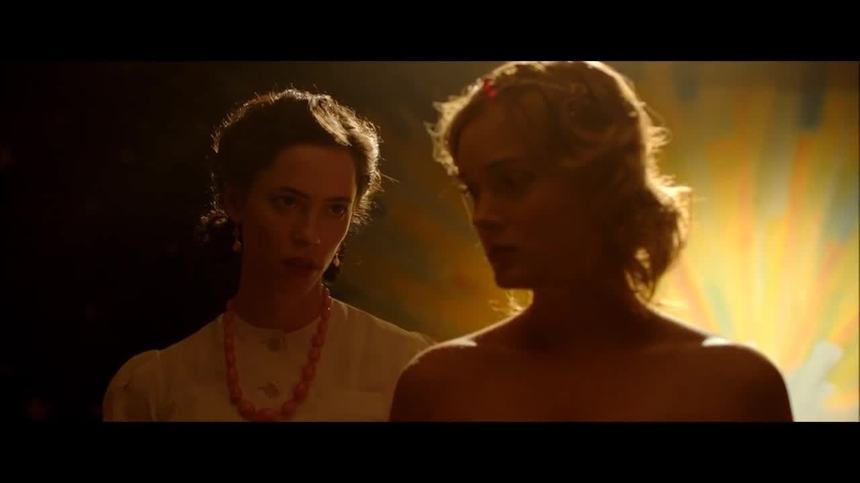Fantastic Fest 2017 Review: PROFESSOR MARSTON AND THE WONDER WOMEN, The Queerness of Creation

The United States has always been prudish and conservative when it comes to sex, to say the very least. Television shows and films can show enormous amounts of violence, but heaven forbid even a glimpse of nipple is seen. So to learn that Wonder Woman, the iconic superhero and her comic book series, were created by a man living a queer, polyamorous lifestyle with two women in 1940s New England might come as a surprise. That is, until you see Angela Robinson's biopic of the story, Professor Marston and the Wonder Women. Made with Hollywood pinnache, but staunchly an indie film, Robinson crafts a love story to queer lives and the process of creation.
Bill Marston (Luke Evans) is a psychology professor at Radcliffe College (at the time a women's only college adjunct to Harvard University). His wife Elizabeth (Rebecca Hall), works as his assistant as she tried to get her PhD proposal accepted at Harvard (which was not very receptive of women). Into their lives walks Olive (Bella Heathcote), a young teaching assistant, and not only does she contribute to their work, the three fall in love and form a polyamorous partnership. Set upon by conservative convention, the three nonetheless strive to live their lives as they want, all the while the inspiration for Wonder Woman comes to light.
Much as Amma Asanta turned costume drama convention on its head with her film Belle, so Robinson does with the period biopic. The production design is immaculate, as is the cinematography and costume design, giving us the classic slice of 1940s Americana: pre-civil rights, in the middle of World War II, with a new wave of free-thinking adults starting to clash with long-entrenched conservative values. Rather than making the story of Bill, Elizabeth and Olive seen strange and inconsistent, Robinson places their love, and the way they want to live their queer lives directly into this society and culture, as much a part of it as apple pie. Robinson and cinematographer Bryce Fortner go to great lengths to avoid any typical trappings of the male gaze, particularly when filming the love scenes; indeed, perhaps it's not even a female gaze, but a new one we must adopt for a situation not often seen on screen.
Robinson approaches the story with an emphasis on feminism (all three were staunch feminists, Elizabeth especially ahead of her time, and unable to be recognized for her intelligence by a world not ready for it), and how that feminism, with its strong injection of queerness was the inspiration for Wonder Woman. Feminism can be found in the workplace drama scenes, but also in the bedroom ones; it may look at first glance that this is all about Bill being able to have two women to bed with, but in the end, it is about Olive and Elizabeth and their relationship, their love, and Robinson finetunes her focus on that, and how they are indeed, wonder women, for it was (and is) women who suffer the stigma of non-heteronormative love and relationships the most (at least in the straight community).
Evans serves well as Bill, a man ahead of his time in recognizing equality for women (indeed, Wonder Woman was Marston's propaganda tool to help young boys recognize women as equals). But he rightly takes a back seat to his co-stars Hall and Heathcote. Heathcote does a tremendous job of making her Olive sincere without being naive, and heartfelt without being sappy. But (no surprise) Hall is simply outstanding; she is the kind of woman that so many other women aspire to be: smart, sarcastic, fierce, and unafraid. The love between her and Olive is the heart of the film, but she is its brains, while Bill is the storyteller.
Informative without being condescending, intelligently scripted and wonderfully acted, Professor Marston and the Women Women is seamless blend of biography, history, and cultural scrutiny, blended together with a necessarily queer eye for an audience that might be surprised to know how the great icon came into being.







